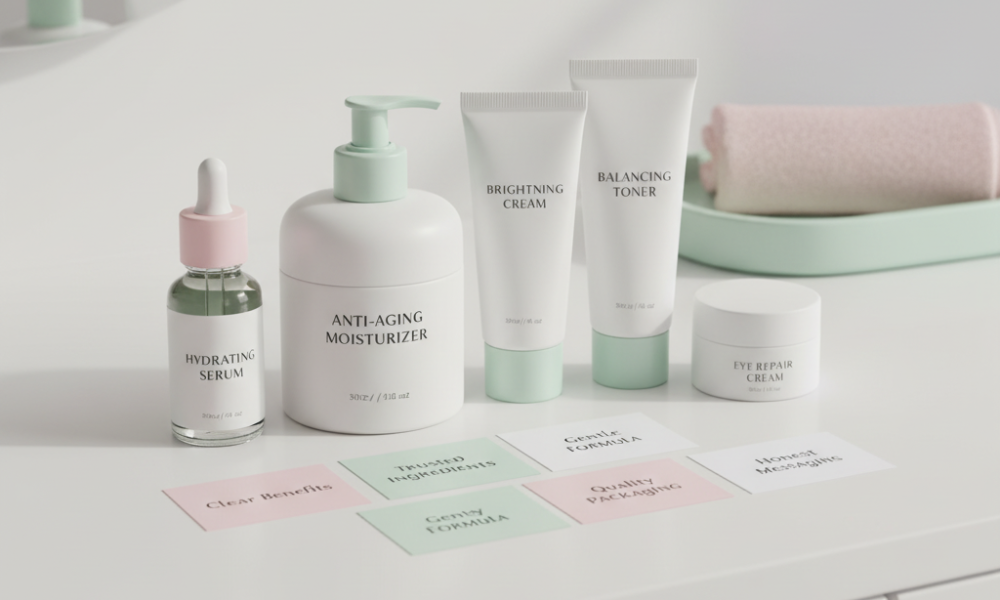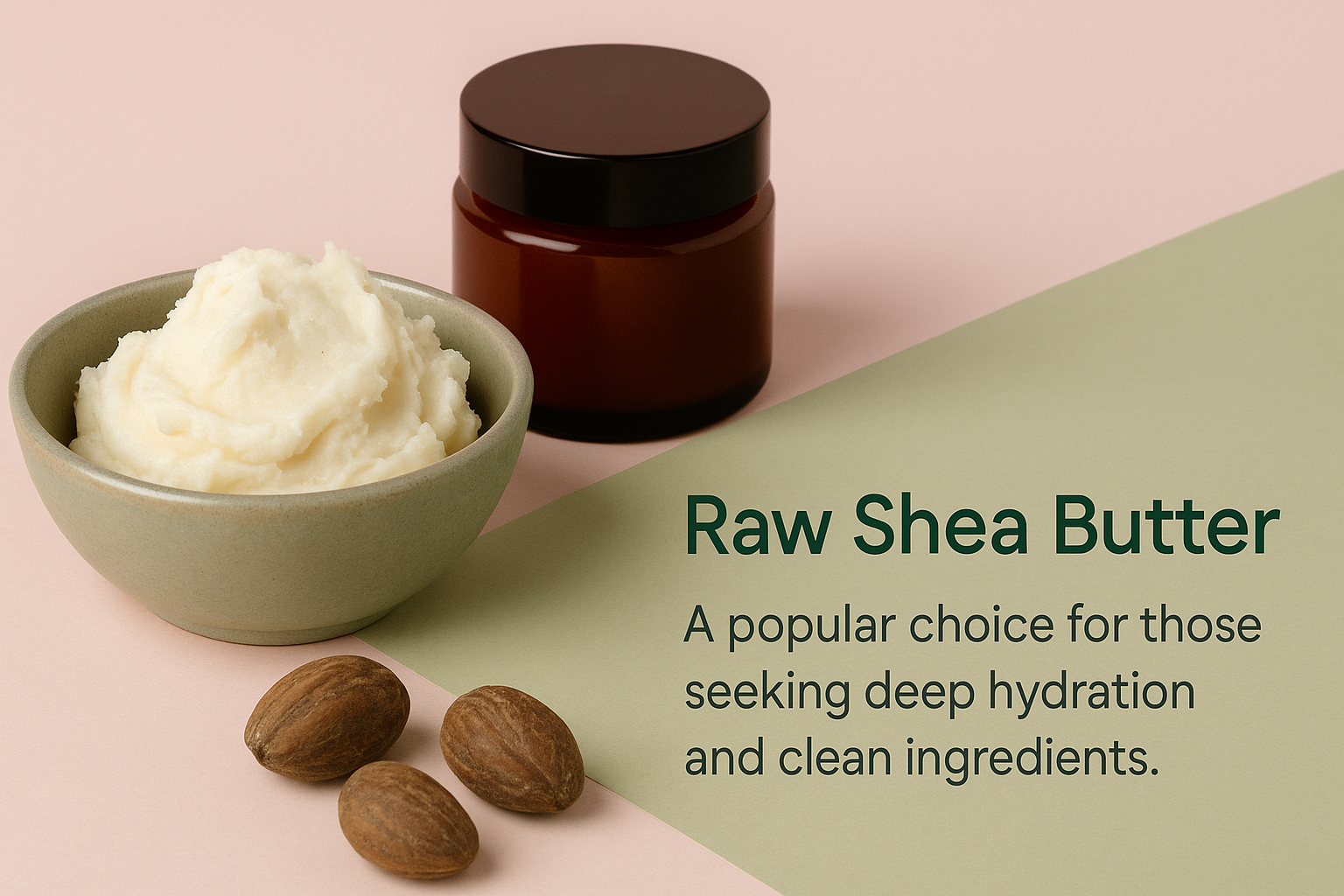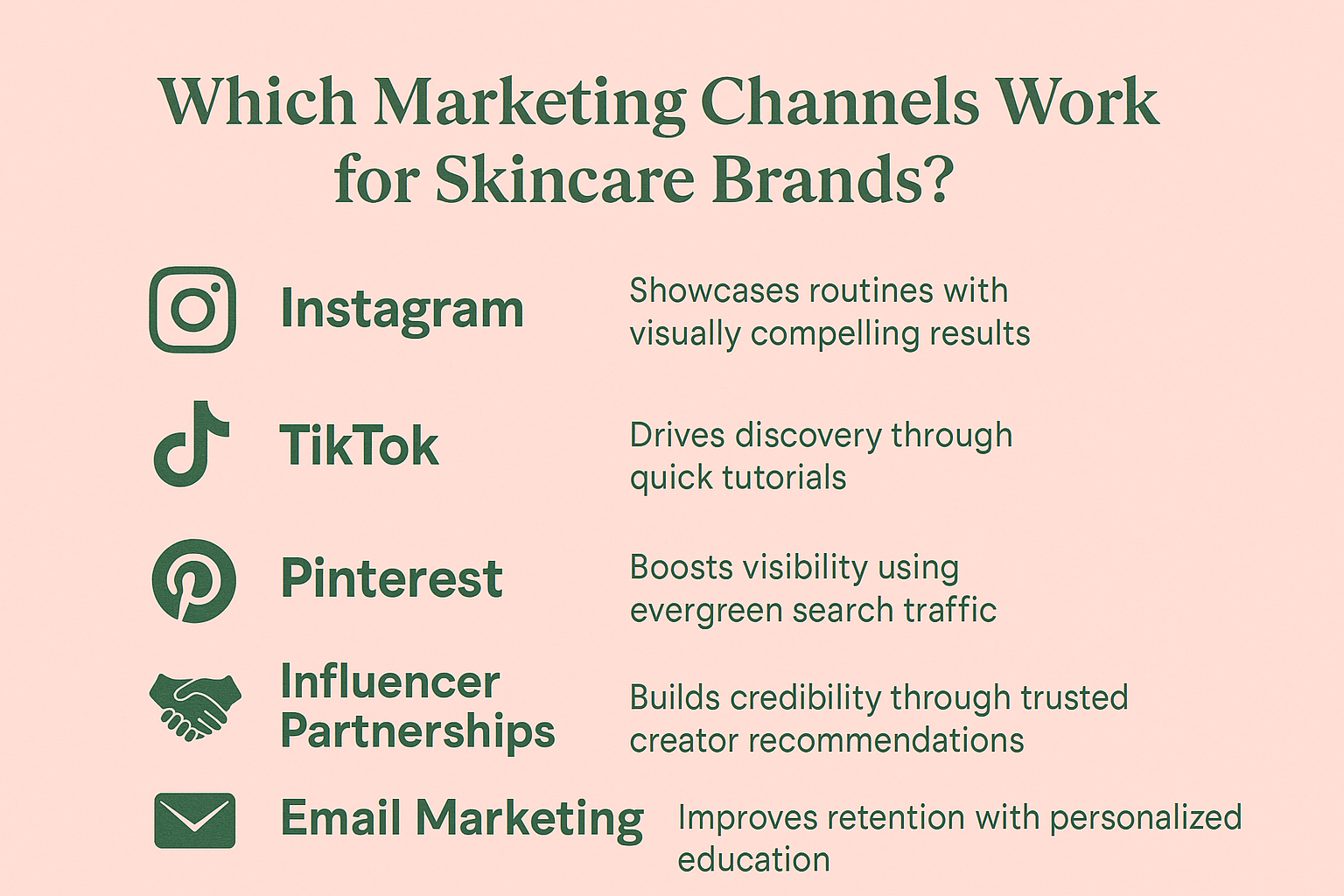.avif)
Bestsellers in the skincare industry can give you powerful insight into what customers truly want and why certain formulas consistently outperform others.
In this guide, you’ll learn which skincare products lead the market, what makes them so popular, and how these trends can inform your own product selection or brand strategy.
You’ll also uncover the key features customers look for when choosing skincare, giving you a clearer understanding of what drives repeat purchases and long-term loyalty.
9 Best-Selling Skincare Products Dominating the Market

The skincare market is driven by products that consistently deliver visible results and build strong customer trust.
These best-selling items dominate because they address essential skin concerns like hydration, anti-aging, and skin repair with proven effectiveness.
Below are ten standout private-label skincare products that reflect today’s strongest beauty trends. You’ll see why each product sells, what customers value most, and how these formulas can elevate your brand with reliable, in-demand essentials.
1. Hyaluronic Acid Serum
The Hyaluronic Acid Serum remains a top-selling skincare staple thanks to its unmatched ability to boost hydration and smooth skin texture. Customers love its lightweight feel, quick absorption, and the visible plumping effects it delivers across all skin types.
- Delivers deep hydration using high-performing moisture-binding ingredients
- Helps improve suppleness through lightweight formulas customers love
- Fits easily into routines due to its universal compatibility across all skin types
2. Anti-Aging Moisturizer
The Anti-Aging Moisturizer consistently ranks high in customer demand due to its ability to soften fine lines, support skin elasticity, and deliver a visibly smoother complexion.
Its rich, creamy texture absorbs comfortably into the skin, making it ideal for nighttime routines or anyone seeking a more intensive anti-aging boost.
Customers value how effortlessly it fits into their regimen while offering noticeable improvements in firmness and overall skin appearance.
3. Skin Hydration Cream
The Skin Hydration Cream is a dependable daily essential that provides long-lasting moisture with a soft, non-greasy finish that customers appreciate.
Its gentle formula works well for all skin types, dry, oily, combination, and sensitive, making it a highly versatile bestseller across seasons. Users choose it for its ability to maintain skin softness throughout the day while supporting a healthy, balanced moisture barrier.
4. Snail Mucin Face Serum
The Snail Mucin Face Serum is a trending favorite thanks to its soothing, barrier-repairing benefits that attract both skincare beginners and enthusiasts. Its gentle yet effective formula gives customers a nourishing boost that pairs well with any regimen.
- Supports skin repair with popular rejuvenating components that many buyers seek
- Helps calm the skin using naturally soothing compounds that stand out
- Attracts beauty enthusiasts through unique ingredient benefits
5. Raw Shea Butter

Raw Shea Butter remains a strong seller because of its rich, nourishing texture and impressive versatility. Customers love using it as a face moisturizer, body butter, lip treatment, and even a natural hair hydrator.
It's naturally high concentration of vitamins and fatty acids appeals to those seeking simple, clean-ingredient solutions that deliver deep and lasting hydration.
6. Hair, Skin & Nails Essentials (Capsules)
Hair, Skin & Nails Essentials capsules continue to be a best-seller because they support beauty from within, addressing hair growth, nail strength, and overall skin health. Consumers value internal wellness products that complement their topical skincare.
- Promotes healthy growth through widely trusted beauty-support nutrients
- Complements topical skincare using inside-out wellness benefits that customers notice
- Works across demographics in holistic beauty routines
7. Hair, Skin & Nails Gummies
Hair, Skin & Nails Gummies offer the same beauty benefits as the capsules but in a fun and flavorful format. They attract customers who prefer an enjoyable and easy daily supplement, making them one of the most accessible beauty products.
- Encourages consistent intake through gummy formats
- Appeals to younger consumers with fun and flavorful delivery methods
- Supports beauty goals using popular nutrient blends
8. Kojic Acid & Turmeric Soap
The Kojic Acid & Turmeric Soap is a customer favorite for its brightening and calming properties, making it especially popular among those targeting uneven skin tone or discoloration.
Kojic acid supports a clearer, more radiant complexion, while turmeric offers soothing benefits that help ease irritation. This dual-action formula provides a gentle yet effective cleansing experience, appealing to customers looking for natural, results-driven skincare.
9. Beauty + Collagen Strips
The Beauty + Collagen Strips offer a portable, quick-dissolving format that delivers collagen without mixing or measuring. Their convenience makes them an ideal choice for busy customers looking for simple beauty support.
- Attracts busy customers through ultra-convenient delivery formats
- Supports youthful skin using collagen-rich formulas that customers trust
- Fits modern lifestyles with portable beauty solutions
Which Marketing Channels Work for Skincare Brands?

Skincare brands rely heavily on marketing channels that allow them to show results, tell stories, and build trust with visually driven customers. The strongest platforms are those that help brands demonstrate real effectiveness, educate customers, and create connections.
Different marketing channels play different roles; some help you attract awareness, others build credibility, and many support long-term customer loyalty.
Here are the most effective marketing channels for skincare brands:
- Instagram: Showcases routines with visually compelling results that attract beauty-focused audiences
- TikTok: Drives discovery through quick tutorials and trending content that customers engage with
- Pinterest: Boosts visibility using evergreen search traffic and inspiration boards that influence buying
- Influencer Partnerships: Builds credibility through trusted creator recommendations that guide decisions
- Email Marketing: Improves retention with personalized education and offers targeted to customer needs
What Features Customers Look for When Choosing Skincare Products
Customers tend to choose skincare products that feel effective, trustworthy, and tailored to their needs.
They look for formulas that address specific concerns, such as hydration, brightening, or anti-aging, while paying attention to proven ingredients that offer visible results. A clear understanding of what a product does helps shoppers feel confident that it’s worth adding to their routine.
Many buyers also evaluate labels, ingredient transparency, and packaging quality to ensure the product aligns with credibility and modern skincare standards.
Here are the key features customers evaluate before choosing a product:
- Clear benefits that highlight targeted skin concerns for easy understanding
- Ingredient lists featuring trusted and recognizable actives that influence results
- Gentle formulations offering comfortable daily use without irritation
- Packaging that communicates quality and professionalism through design
- Brand messaging that builds trust and transparency with consumers
A product that balances performance, experience, and trust-building features is far more likely to stand out, earn customer loyalty, and drive repeat purchases.
Strengthen Your Skincare Product Strategy Today
Creating a successful skincare lineup begins with understanding what customers value most and choosing products that reflect quality, trust, and real results.
When you combine strong formulations with thoughtful branding and clear positioning, your offerings become more compelling and easier for customers to connect with.
As you refine your next steps, use these insights to guide confident, strategic decisions. A well-informed approach sets the foundation for long-term growth and a skincare brand that resonates with your audience.
FAQ
The most popular skincare products vary based on trends, but vitamin C serums consistently rank as a top seller. Known for brightening skin tone and protecting the skin’s barrier, vitamin C is a must-have in many skincare routines. Other top products include body wash, moisturizers, and sunscreens, as they are daily essentials for all skin types.
A solid skin care routine starts with the following. Cleanser—removes dirt, oil, and makeup to keep skin fresh. Moisturizer—helps maintain moisture and prevent dryness or irritation. And sunscreen—protects the skin’s barrier from harmful UV rays and premature aging. For added benefits, many people also incorporate vitamin C for brightness and vitamin E for extra nourishment.
The best website depends on your business model. Shopify is great for building your own store, while Amazon and Etsy offer high traffic for sellers. If you want to sell skincare through a world-recognized platform, Amazon is a strong choice, but it requires handling sales tax and fulfillment logistics.
The best method is creating a strategy that combines your own website, online selling platforms, and social media. A mix of organic marketing, influencer collaborations, and paid ads helps drive sales while keeping customers engaged. Selling through your own site gives you control, while platforms like Amazon provide instant access to a world of buyers.
Using platforms like Facebook Marketplace, eBay, or Poshmark, you can start selling with zero upfront costs. Social media can also help—post products on Instagram or TikTok to attract buyers. For skincare, partnering with beauty influencers or offering free samples can treat your audience to a preview before they buy. Don’t forget to showcase how your products remove makeup, nourish the lips, and help improve skincare routines.
Related blogs
.avif)
Stay Ahead of the Curve: Top Supplement Trends to Watch and Sell




